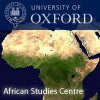Public health and gender: Assumptions, disjunctures in practice, and implications for HIV prevention within marriages in Kenya
In Kenya, marriage is a significant contributor to adult HIV infections. Global public health acknowledges the relationship between gender inequalities and HIV in marriage. However, behaviour change interventions to reduce the marital HIV ‘risk’ in Kenya have emphasized individual-level sexual behaviour change and, in recent times, accelerated biomedical solutions in the drive towards ending the AIDS epidemic by 2030. The social and structural realities that, for example, produce and facilitate extramarital sexual behaviour are often masked by the emphasis on individual responsibility that underpins the neoliberal market logic which serves to shift obligation of welfare from the state, and other global institutions, to its citizens. Thus, public health’s discourses and education on HIV (e.g. marital monogamy and fidelity, condom use) are under the rubric of this responsibilising ideology. In this presentation, I examine how the biopower of public health frames HIV risk in marriage, how they imagine and seek to shape gender and sexual relations in marriage, and the assumptions they make about local marital and gender relations in their programs and discourses. On the other hand, using data from rural and urban heterosexual couples, I explore how married individuals receive, interpret, and act (adopt or resist) on public health messages in light of their socio-cultural and material circumstances that also powerfully regulate behaviour, and then what forms of gender and social relations emerge to either reduce or exacerbate HIV transmission in marriage. This presentation highlights the relations in the two realms of power—public health, and socio-cultural and structural realities—and what this means for HIV in marriages in Kenya.
Roseanne Njiru is a visiting fellow at the Centre of African Studies, University of Cambridge. She teaches Sociology in the Department of Social Sciences and Development Studies at The Catholic University of Eastern Africa in Kenya. She has a PhD in Sociology, and a graduate certificate in Human Rights, both from the University of Connecticut, USA. Her MA in Sociology is from the University of Nairobi, Kenya. Her doctoral research is on gendered HIV transmission in marriages in Kenya. Her research interests are in gender, health, human rights, internal displacement and peacebuilding.




